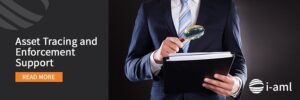CHEYENNE, Wyoming – The clapboard house sits off a gravel road on the outskirts of town, partly hidden behind a fence and a heaping pile of trash. Here, amid grassland that stretches for miles, 77-year-old Cyndy Jackson is the official gatekeeper for more than 350 companies that operate in the United States and around the world.
The state doesn’t require any training for company representatives like Jackson, known as registered agents. She said she uses the internet and gut instinct to size up the owners she represents, but has no formal procedures for examining their backgrounds. The state doesn’t require that, either.
“You just have to kind of go on trust,” said Jackson, an agent for 30 years. “Nobody knows who anybody is anymore.”
Few other facilitators in the U.S. financial system operate with as little oversight as the thousands of registered agents who often serve as the only publicly known contact for companies with anonymous owners.
Oligarchs, criminals and online scammers have reaped the benefits.
Jackson has represented companies tied to a disbarred lawyer convicted in California of “pimping and pandering” at massage parlors, a felon who served time in New York for defrauding investors and a Ukrainian tycoon accused of stealing billions of dollars from one of his nation’s largest banks.
Their names and others turned up in an extensive examination by the International Consortium of Investigative Journalists and The Washington Post of thousands of company records filed with the state of Wyoming, one of America’s most secretive tax havens. The records came primarily from limited liability companies (LLCs), a business structure that offers tax breaks, legal protections and privacy safeguards.
On most of the records, the only names listed were those of registered agents. In Wyoming, the owners of LLCs are not required to identify themselves, although some choose to do so on corporate filings. ICIJ and The Post found additional names linked to LLCs and other companies by scouring court documents and other government records.
Across the United States, registered agents provide routine corporate services, filing incorporation documents and annual reports. In many cases, they are the lone contact for anyone looking to sue companies or lodge a complaint.
Experts have warned for years that the nation’s sprawling industry — comprising attorneys, part-time participants and multistate speciality operations that represent thousands of companies — is a weak point in the U.S. financial system. While banks must vet customers, registered agents aren’t uniformly required to verify their identities.
“If I were a criminal or ran a criminal enterprise, I would have a field day with registered agents because I just need to find another adult with a pulse,” said Sarah Beth Felix, a former banking compliance executive. “Who’s going to make sure they are doing the right thing?”
Wyoming, Delaware and Nevada have been at the forefront of a national debate about whether to ramp up oversight of registered agents. Those states and a handful of others are havens for hidden wealth, prized by company owners for their low incorporation fees, scant regulation and offers of anonymity. During a 2009 Congressional hearing, an official with the National Association of Secretaries of State noted registered agents in Wyoming and Nevada had been seen as “poster children…in a bad way” for lapses within the industry.
In October, a bipartisan group of lawmakers proposed federal legislation that would require registered agents to scrutinize clients and report suspicious transactions. They drafted the measure, dubbed the Enablers Act, following publication of the Pandora Papers, a global investigation by ICIJ, The Post and other media partners exposing how the global elite shield riches from taxing authorities, criminal probes and public accountability.
.
.
“Some of these states have failed to ensure that the United States of America is not the number one destination for dirty money in the world,” said Rep. Tom Malinowski (D-N.J.), a key sponsor. “If they had been doing their jobs, we wouldn’t need to act in this area.”
The matter has taken on fresh urgency since Russia invaded Ukraine, prompting governments to trace and freeze assets held by oligarchs close to Russian President Vladimir Putin. After the war began on Feb. 24, a coalition of experts called on Congress to pass the Enablers Act and other measures, pointing to revelations in the Pandora Papers that Russian billionaire Igor Makarov secretly held real estate and a 13-seat private jet through an LLC and trust in Wyoming. Makarov has previously said through his attorney that he has no personal relationship with Putin and that his trust was properly disclosed.
Last January, a federal law for the first time required LLCs and similar business entities to provide the names and birth dates of their owners to a new government database. But that registry is not accessible to the public, and transparency advocates argue that the sheer volume of information may leave federal authorities unable to identify many fraudulent entries and the owners behind them. Delaware alone recorded more than 180,000 new LLCs in 2020, records show.
.
It’s like dealing with a three-card monte dealer. Can you find the card?
— litigator Stuart Rossman
.
The proposed Enablers Act would go further, requiring every registered agent not only to identify company owners but also to look for and report red flags.
Some agents, however, have massive client lists — one operation in Delaware notes that it has represented more than 300,000 companies. Smaller agents may not have the means or ability to track down clients, particularly those who live abroad, experts say. Wyoming doesn’t keep a comprehensive list of registered agents, and some can be as elusive as the company owners they represent.
“It’s like dealing with a three-card monte dealer. Can you find the card?” said Stuart Rossman, litigation director at the National Consumer Law Center who said he often has to hunt for registered agents when filing fraud complaints against companies with no known address or other point of contact. “I’m chasing smoke, and it’s intentional.”
In Wyoming, the number of LLCs has soared in the past decade from about 4,200 to more than 220,000, state data shows. Companies established in the state have been listed in overseas lawsuits alleging medical fraud in Russia, tax dodging in Hungary and bank theft in Zimbabwe, foreign court records show.
Jackson and other registered agents acknowledge that they know little or nothing about the owners of companies they are paid to front, nor what function those companies serve.
Companies established in Wyoming have been listed in overseas lawsuits alleging medical fraud in Russia, tax dodging in Hungary and bank theft in Zimbabwe, foreign court records show.
Representing every LLC is a registered agent, drawn from a diverse group that includes Wyoming’s House majority whip, a municipal court judge and a former Cheyenne city council president. One agent represents more than 250 companies — dozens linked to foreign owners — from a beige camper parked at a barren crossroads north of Cheyenne, records and interviews show.
Another agent, Candice Dillmon, compiled a roster of clients through a company that promotes Wyoming to business owners in Poland. “Pełna anonimowość,” the company says on its website — “Full anonymity.”
Dillmon, who also works full time in human resources for the state, said she has represented 1,200 companies. One was linked to a politician in Poland who resigned in December amid reports that the company tried to sell unproven and dangerous medical treatment to patients with incurable diseases.
Dillmon said she is doing what the law allows: representing companies without question or judgment.
“It’s not my responsibility what a business does,” she said. “It’s a fraud-friendly state by the laws that are created. Unless the state changes that, I’m just doing my part.”
.
April 5, 2022 Published by The International Consortium of Investigative Journalists.







